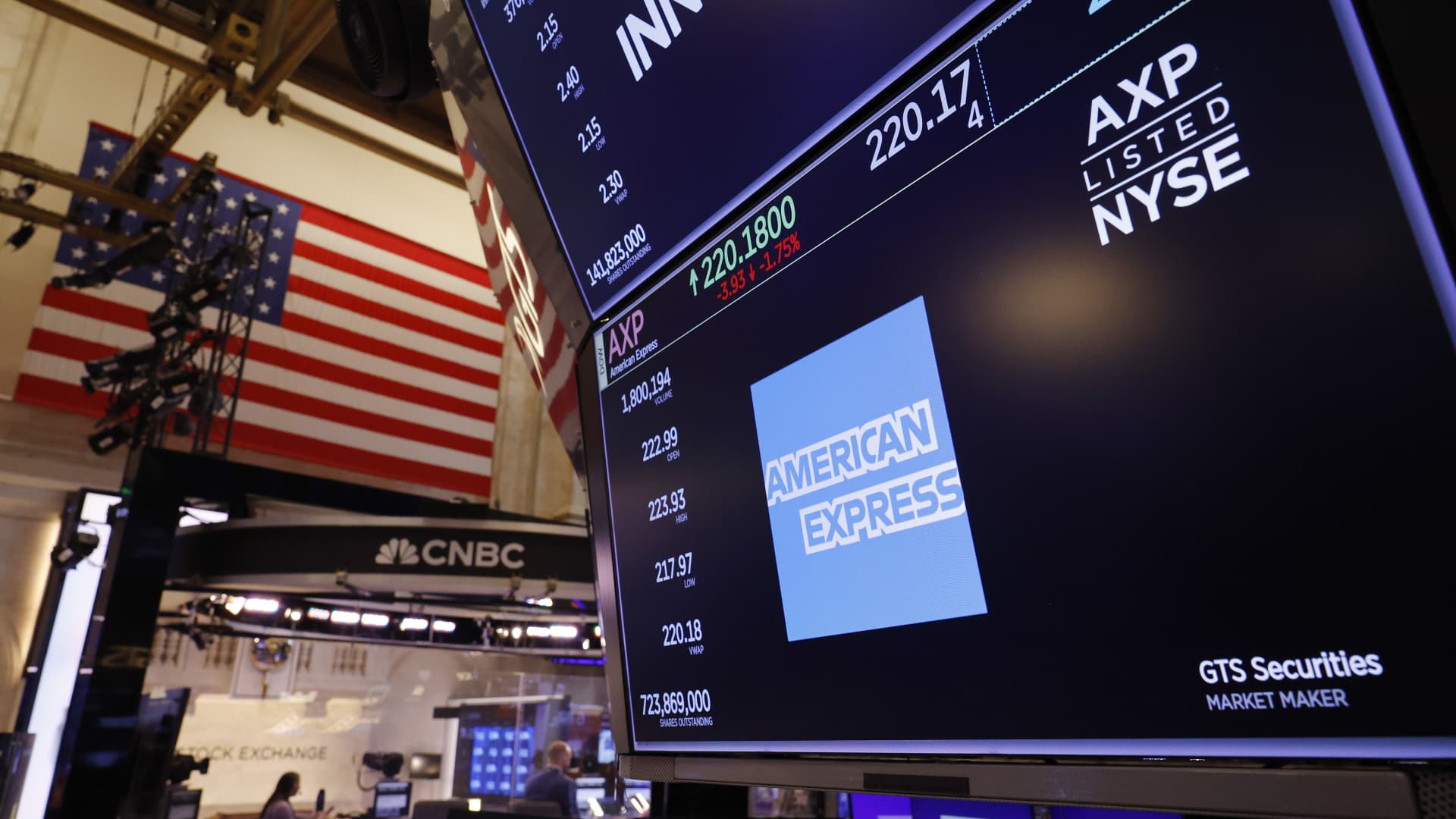
This is CNBC's live blog covering Asia-Pacific markets.
Asia-Pacific markets rebounded from Friday's sell-off as investors look to fresh data points out of China, Japan and South Korea this week.
On Friday, markets in the region tumbled after Israel launched a strike at Iran, causing stocks to fall and safe-haven assets to climb.
On Monday, China's one-year and five-year loan prime rates were left unchanged at 3.45% and 3.95% respectively. The five-year LPR acts as the peg for most property mortgages.
Get DFW local news, weather forecasts and entertainment stories to your inbox. Sign up for NBC DFW newsletters.
Hong Kong's Hang Seng index jumped almost 2%. Mainland China's CSI 300 was slipped 0.3% and closed at 3,530.9 after the LPR announcement, making it the only major market down on Monday.
Japan's Nikkei 225 closed 1% higher at 37,438.61, with the broad based Topix seeing a larger gain of 1.38% to end at 2,662.46.
South Korea's Kospi also rose 1.45% to close at 2,629.44, while the small cap Kosdaq advanced 0.46% to end at 845.82.
Money Report
In Australia, the S&P/ASX 200 started the week higher, closing out 1.08% up at 7,649.20.
On Friday in the U.S., the Nasdaq Composite and S&P 500 fell for a sixth straight session, notching their longest losing streak since October 2022.
The downtrend comes as Nvidia dived, adding to recent market woes tied to geopolitical conflicts and sticky inflation.
In contrast, the Dow Jones Industrial Average rose 0.56%, lifted by a rally of more than 6% in American Express following earnings{
American Express boosts Dow

The Dow has once again outperformed on Friday, lifted by American Express' post-earnings rally.
The blue-chip average is the only of the three major indexes poised for gains in Friday's session. It has also seen the smallest loss on a weekly basis.
American Express led the index higher on Friday, with shares jumping more than 4%. The financial company posted stronger-than-expected diluted earnings per share and reaffirmed full-year guidance.
UnitedHealth and Chevron were the next-biggest advancers on Friday, with each up more than 1.5%. About 2 out of every 3 of the 30 Dow members traded higher in the session.
— Alex Harring
— CNBC's Yun Li and Alex Harring contributed to this report.
Li Auto leads declines among Chinese electric vehicle makers after price cuts
Hong Kong-listed shares of Li Auto fell 8.8% to their lowest level in 11 months.
The Chinese electric vehicle maker cut prices for its models, including the L7, L8, L9 and the newly launched MEGA SUV, it said on its Weibo account. The cuts for the models were reportedly up to 30,000 yuan ($4,141.64).
This comes after Reuters reported that Tesla cut the starting price of its Model 3 in China to 231,900 yuan on Sunday, a reduction by 14,000 yuan.
Shares of other Chinese EV makers also fell with Nio down 1.7%, Xpeng down 1.6% and BYD down 0.2%.
— Shreyashi Sanyal
U.S. dollar strength to persist for the next 3-6 months, says strategist
The U.S. dollar will remain strong in the next three to six months, according to Chidu Narayanan, head of macro strategy for APAC at Wells Fargo Securities.
He told CNBC's "Street Signs Asia" that the greenback will benefit from strong U.S. growth as well as Federal Reserve rate cuts coming later than previously forecast. Narayanan said markets are currently looking for catalysts.
"Until you get that catalyst, you're going to have the current themes that are driving markets continue to go on," he said.
That sustained dollar strength will pressure Asian currencies, he said, especially the Japanese yen and the offshore Chinese yuan.
The yen traded around 154.60 while the offshore yuan was hovering around 7.25 on Monday.
— Vivien Soo
Safe haven assets retreat as fears of wider Middle East conflict recede
Prices of risk assets jumped while safe haven asset prices fell on Monday as fears of a broader Middle East conflict subsided.
Bitcoin was up 1.56% to trade at $65,713.97, according to Coin Metrics, as most Asian equity markets rose, led by Hong Kong's Hang Seng Index.
The Japanese yen, considered a safe haven asset, weakened marginally to 154.7, while prices of spot gold slipped 0.87% to $2,369.58 per ounce.
Oil prices, which initially spiked on news that Israel had carried out a strike against Iran, also fell. Brent crude futures were down 0.73% at $86.65 on Monday, while U.S. West Texas Intermediate futures lower by 0.84%, trading at $82.44.
— Lim Hui Jie
China leaves loan prime rates unchanged
China's central bank left its one- and five-year loan prime rates unchanged at 3.45% and 3.95%, respectively on Monday.
The one-year LPR is seen as the peg for most household and corporate loans, while the five-year LPR is the benchmark for most property mortgages.
The decision was in line with a Reuters poll which expected both rates to stay unchanged.
China's CSI 300 index gained 1.9% last week.
— Shreyashi Sanyal
Tesla cuts prices globally after deliveries fall in first quarter: Reuters
Electric vehicle giant Tesla slashed prices of its cars globally after its first-quarter deliveries fell for the first time in nearly four years.
Reuters reported that the company cut the starting price of its Model 3 in China to 231,900 yuan ($32,000), a reduction by 14,000 yuan.
In Germany, Reuters reported the price of the Model 3 rear-wheel-drive was also cut to 40,990 euros ($43,670.75) from 42,990 euros, where the price had been since February.
Checks by CNBC showed that the China and Germany sites reflected the updated prices.
There were also price cuts in many other countries in Europe, the Middle East and Africa, a Tesla spokesperson told Reuters.
— Lim Hui Jie, Reuters
CNBC Pro: Analysts love this gold explorer's stock — and even the most cautious expect it to soar 114%
Shares of a Canadian gold explorer could double, according to analysts at Scotiabank.
The investment bank reiterated its bullish stance after the mining company released new drilling results from its mine in the United States.
And Scotiabank's aren't the only anaysts who like the stock. BMO Capital Markets gives it an upside of 209%, while Beacon Securities suggests the stock could rise by 400% over the next 12 months.
CNBC Pro subscribers can read more here.
— Ganesh Rao
CNBC Pro: A top fund manager is using these 7 global stocks to beat the market
Global stock markets may be coming under pressure from geopolitical tensions and sticky inflation — but one portfolio manager sees potential in several stocks.
"There are always investment opportunities to be found in all market conditions. We're looking out for stocks that we think are better than the market currently believes," Rob Hinchliffe, managing director and equity analyst at PineBridge Investments, told CNBC Pro last month.
Hinchliffe oversees more than $1 billion of PineBridge's assets via its Global Focus Equity Fund. The fund — launched in 1999 — has holdings in around 40 stocks.
He named a number of his top stocks right now.
CNBC Pro subscribers can read more here.
— Amala Balakrishner
Wharton's Jeremy Siegel still sees two or three rate cuts by end of year
Wharton professor Jeremy Siegel remains bullish on the Federal Reserve's rate-cutting path, he told CNBC on Friday.
"We can all say at the beginning of the year the market was way optimistic with four or five cuts. Now it's squeezed down to one. And I actually think that we might get two or three cuts by the end of the year," Siegel said, pointing out that Fed Chair Jerome Powell noted that if the economy softens, that is another reason to cut rates unless inflation is out of control.
The professor said he sees "good trends" looking ahead to the personal consumption expenditures data. He believes the Fed should cut interest rates if inflation goes down, even if the economy goes down, and said it would be the "super best case" for stocks going forward.
— Pia Singh
Big Tech outperforming during pullback, Barclays says
You cannot blame Big Tech for the stock market rally losing its footing, according to Barclays.
Strategist Venu Krishna said in a note to clients Friday that the earnings strength of the biggest tech stocks has somewhat insulated them in this drawback.
"Big Tech has been more resilient than the rest of the tech sector through the MTD selloff, likely because Big Tech's gains were less dependent on multiple expansion. Overall, losses have been more evenly distributed than gains," Krishna said.
"1Q earnings are the next overhang," Krishna added.
— Jesse Pound
Information technology stocks weigh on S&P 500

The information technology sector dragged on the S&P 500 on Friday, extending a trend seen this week.
The sector slid more than 2% on Friday, making it the worst performing of the 11 that comprise the benchmark. By comparison, the broad index slipped less than 1%.
For the whole week, the sector was also the biggest loser with a drop of more than 6%. The S&P 500 as a whole lost less than 3%.
Super Micro Computer and Micron Technology led the sector into the red this week, respectively diving more than 17% and 12%. Nvidia and Jabil also each shed more than 10% this week.
— Alex Harring






